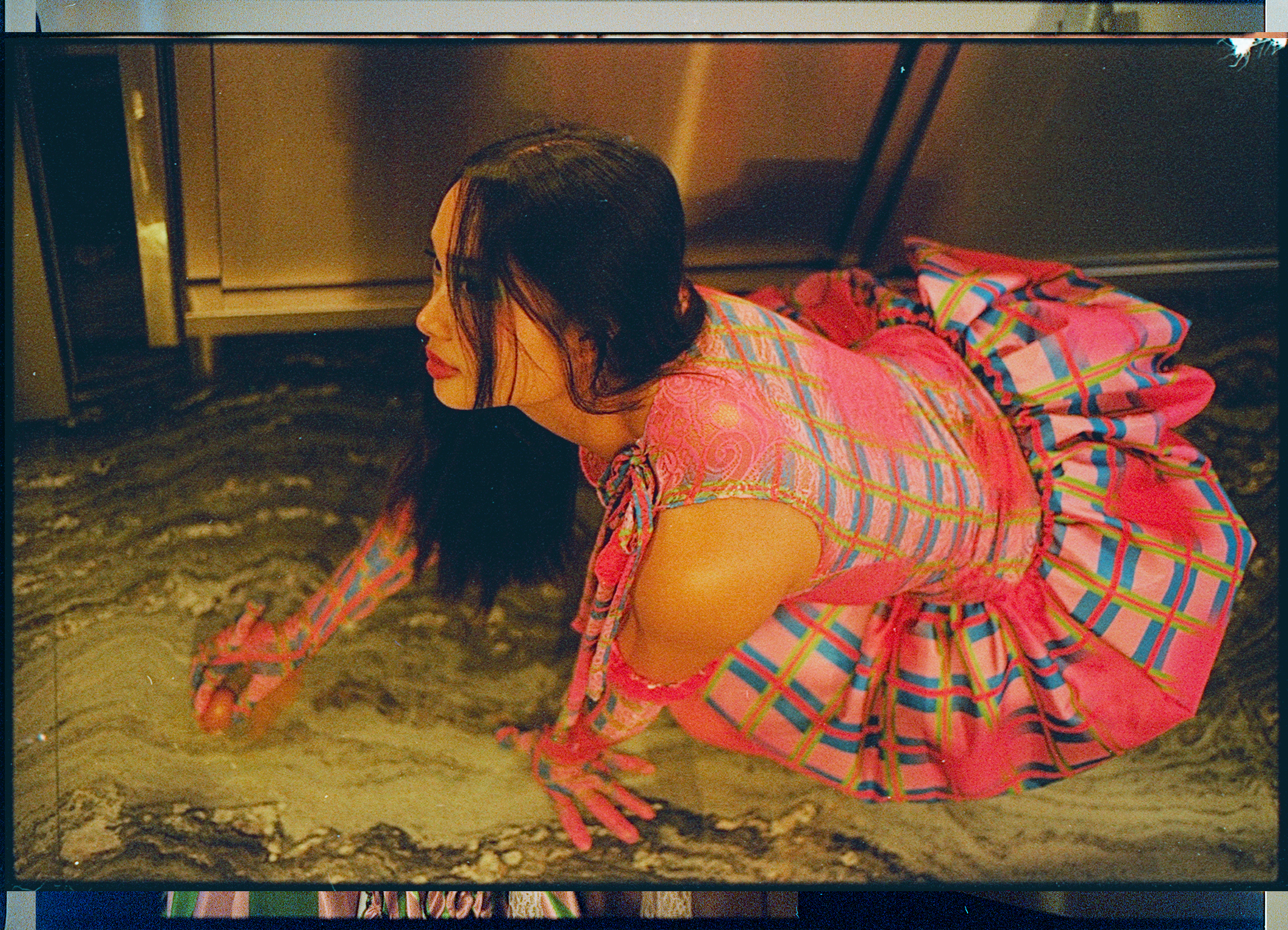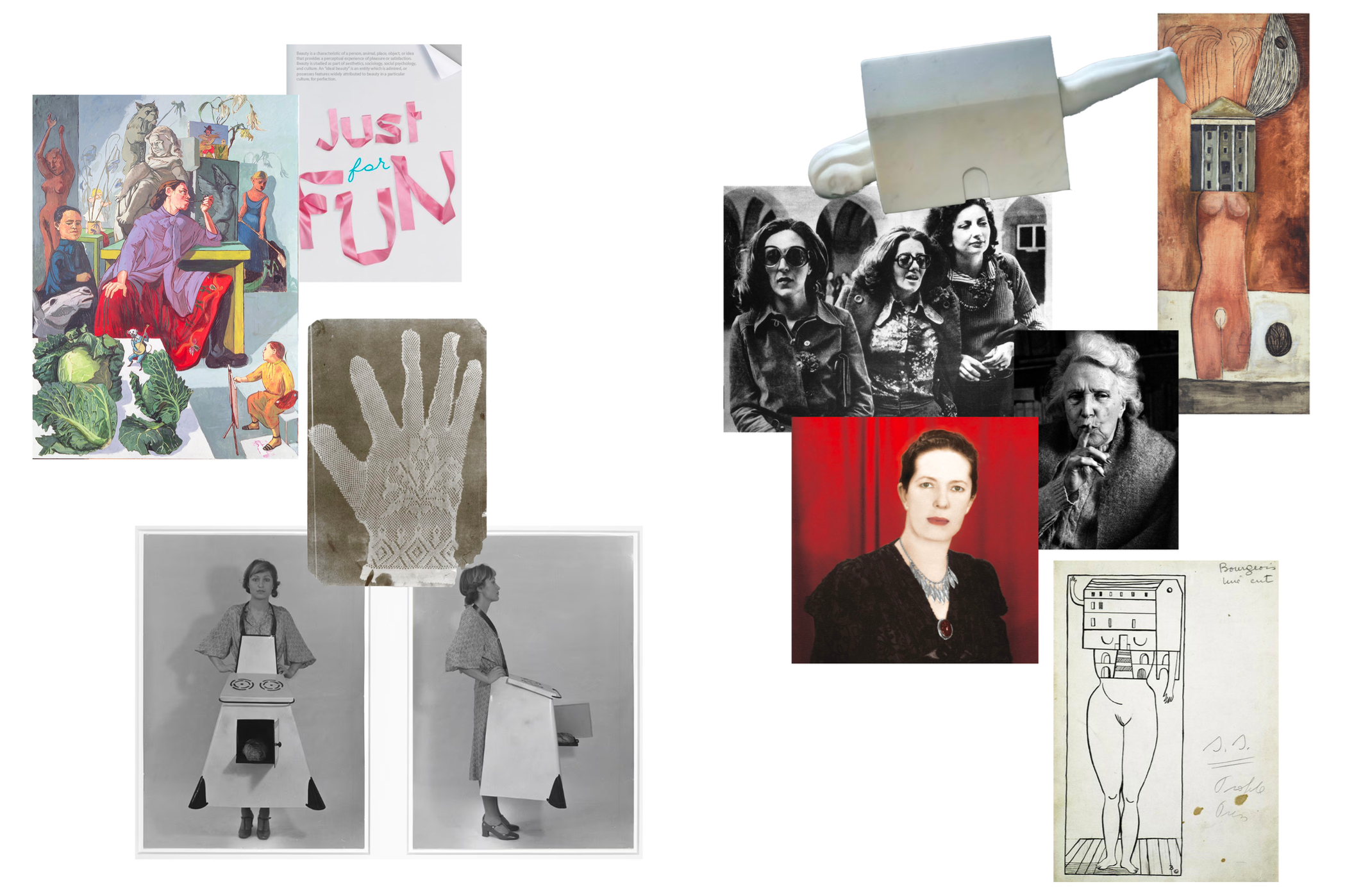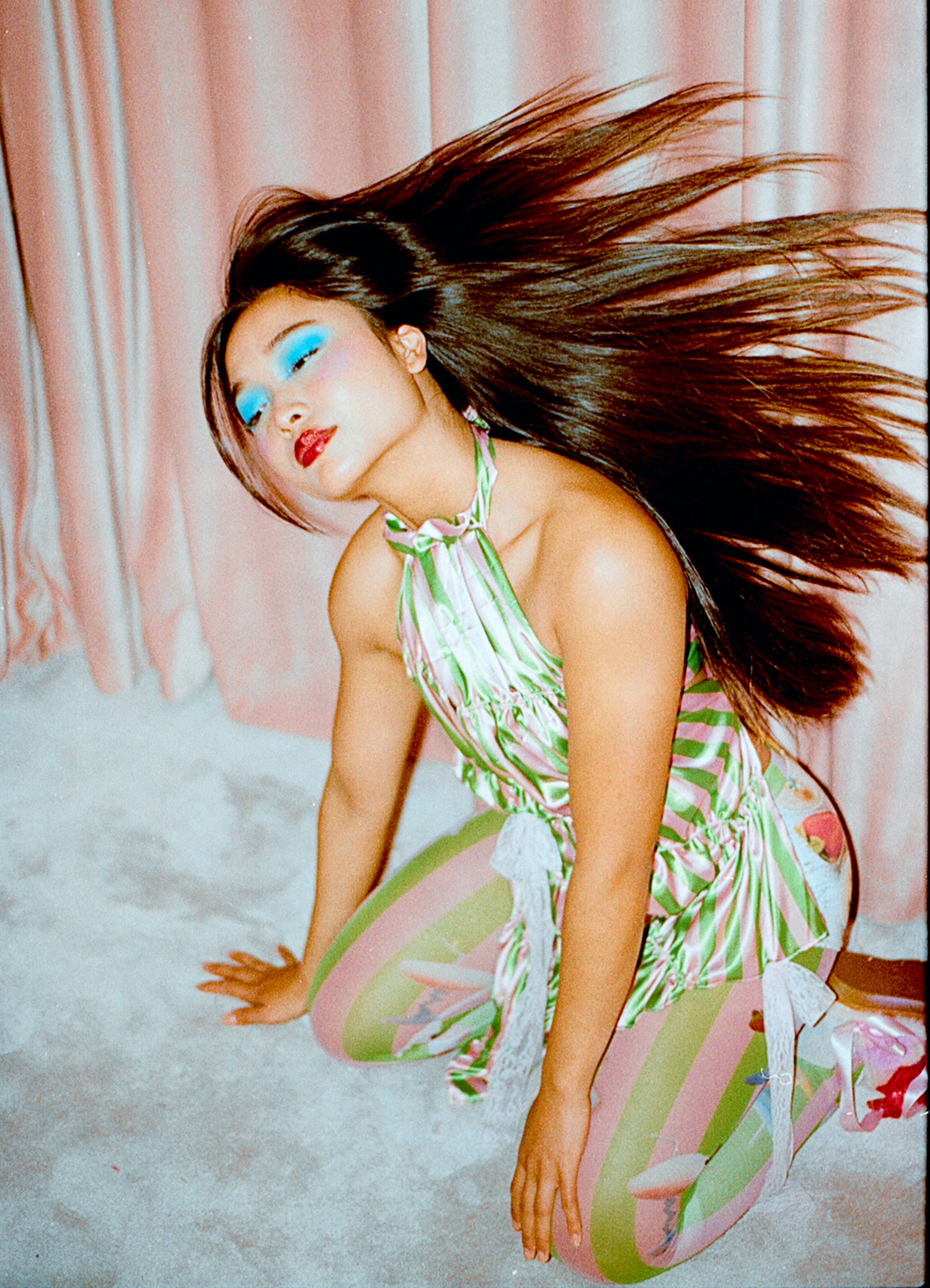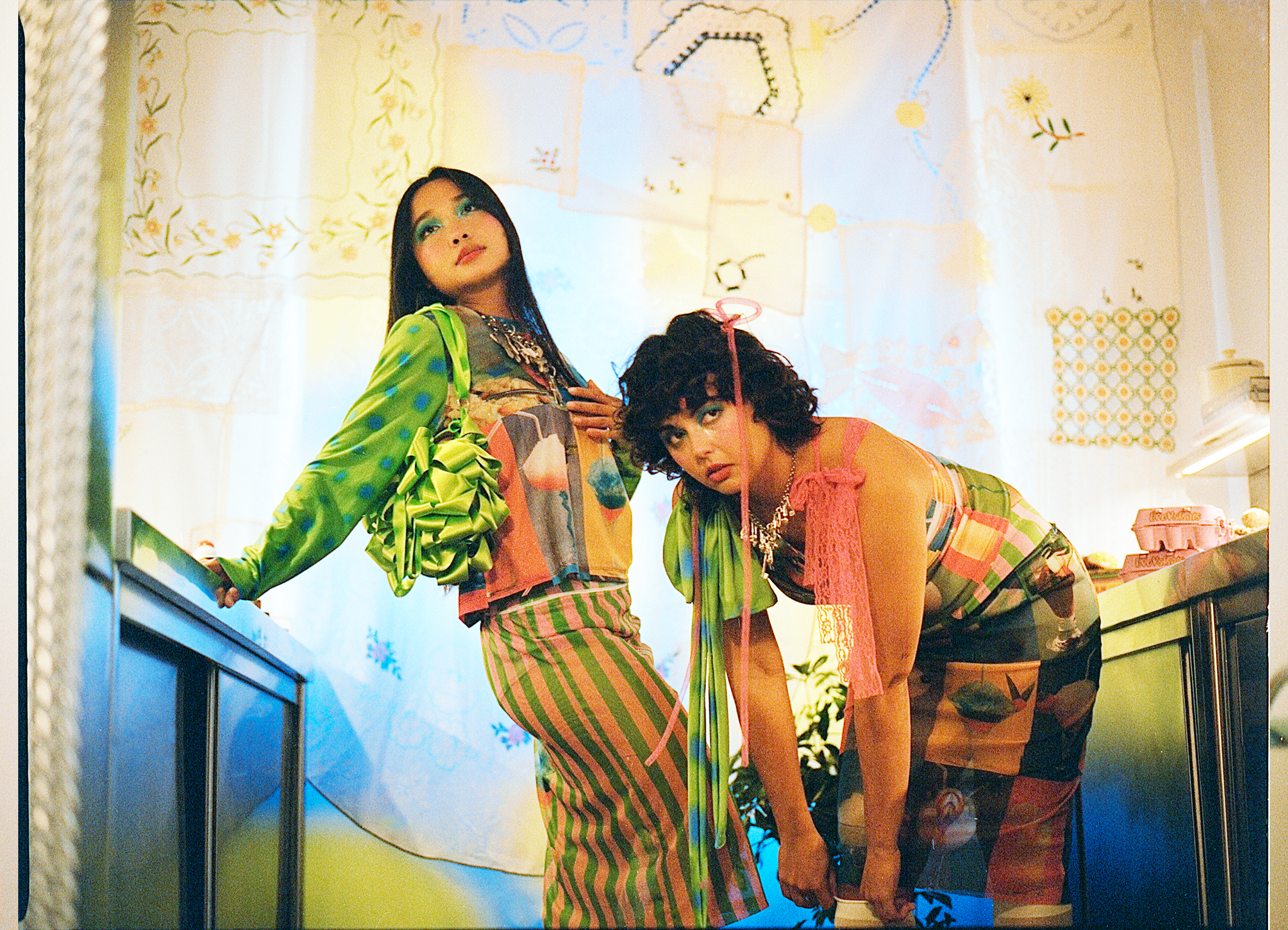

The collection "As Marias" pays tribute to women's unseen, unpaid, and undervalued labor that, contrastingly, gives birth to some of the most treasured things in life: our sense of home and community, our family units, the smells that encode everlasting memories and the cherished traditions that survive generations. The collection will be presented in a domestic and interactive setting where the models are playing and defying their assigned gender roles.

Most prints in the collection are built from pictures taken from a selection of cooking magazines from the 80s and 90s from the designer's grandmother's collection. These magazines are filled with recipes that teach women how to properly fulfill their assigned gender roles (occasionally the recipes can also teach any reader - yes, Kens, we believe in you! - how to cook delicious food). The use of these references in the collection is an acknowledgment of this oppression and a eulogy to the treasures women build in spite of and within it.
In dialogue with the designer's previous collection, "As Marias" continues to explore the women's relationship with the body. While "Meia-lua" focused on exploring the infancy and pre-adolescence, this collection focuses on the adult women and how its bodily experience is affected by the patriarchal structures that it inhabits.
The comfortable silhouettes - like leggings, unfitted long-sleeves and floaty dresses - and bold patterns and colors interact in a delicate dance of balance that women master. The intention is to liberate the overworked adult women from the overhead of constraints imposed by fitted and rigid silhouettes, while empowering them to boldly embrace their beauty and femininity. The comfortable silhouettes also recognize and shelter the soreness of the female experience encoded in both worldly things and striking events: ovulating, carrying life and death, nourishing and bearing newborns, growing, collecting and cooking food, and constantly seeking hideout from the male gaze.

The collection's title embraces one of the most adopted feminine names of all time to evoque the collective female identity. The title is also a reference to five portuguese Marias that are references themselves: the author of Cozinha Tradicional Portuguesa, Maria de Lourdes Modesto, the author of As Mulheres do meu País, Maria Lamas, and the three authors of Novas Cartas Portuguesas, Maria Isabel Barreno, Maria Velho da Costa and Maria Teresa Horta. All responsible for having exposed the female experience in Portugal and codified our excellence. A legacy that the collection "As Marias" humbly intends to carry on through each woman that wears it.



















